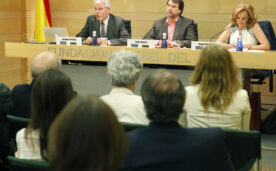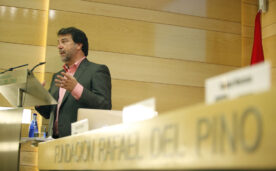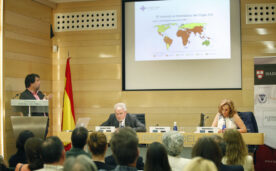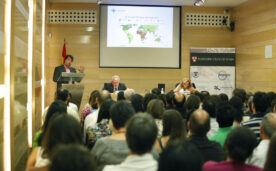On 30 May 2012, the Rafael del Pino Foundation hosted the Keynote Lecture "The great challenges of global health: towards the eradication of malaria", given by Pedro L. Alonso, Director of the Barcelona Institute for Global Health, ISGlobal.
According to Pedro Alonso, "The world has improved for some but many others have been excluded from progress in terms of health improvement. Possibly over the last ten thousand years, the health of populations did not improve significantly and the differential between the richest and the least rich, in terms of health, was relatively small. Nothing remotely like this has ever happened in such a relatively short space of time; world populations have changed so rapidly and so profoundly that some have dared to speak of the last century as the Prodigious Century. [We still have a poverty problem: more than a billion people live on about a dollar a day, and for that segment of our world population of just over a billion people, communicable diseases remain the leading cause of illness, death and underdevelopment. The figures attributed to malaria are around one death every thirty seconds, between three and five hundred million clinical cases a year. We are talking about a disease that is still endemic; therefore, with active transmission in just over a hundred countries, accounting for just over 40 per cent of the world's population".
Regarding the current state of play in the malaria vaccine development process, Dr Alonso set out four steps: "First, confirm safety profiles; second, confirm efficacy levels. These first two steps seem reasonable. There is a third element, still relatively undiscussed and a point of concern, which is the duration of protection; and fourth, the formal Phase 3 study, although it has two age groups: one, five to seventeen months, at the time of vaccination, and the other, newborns. The central objective [of the project] is through newborns, to integrate it into the vaccination programme and, therefore, to use an existing vehicle. In that sense, implementation should be relatively easy, just like the introduction of the pneumococcal or haemophilus vaccine.







